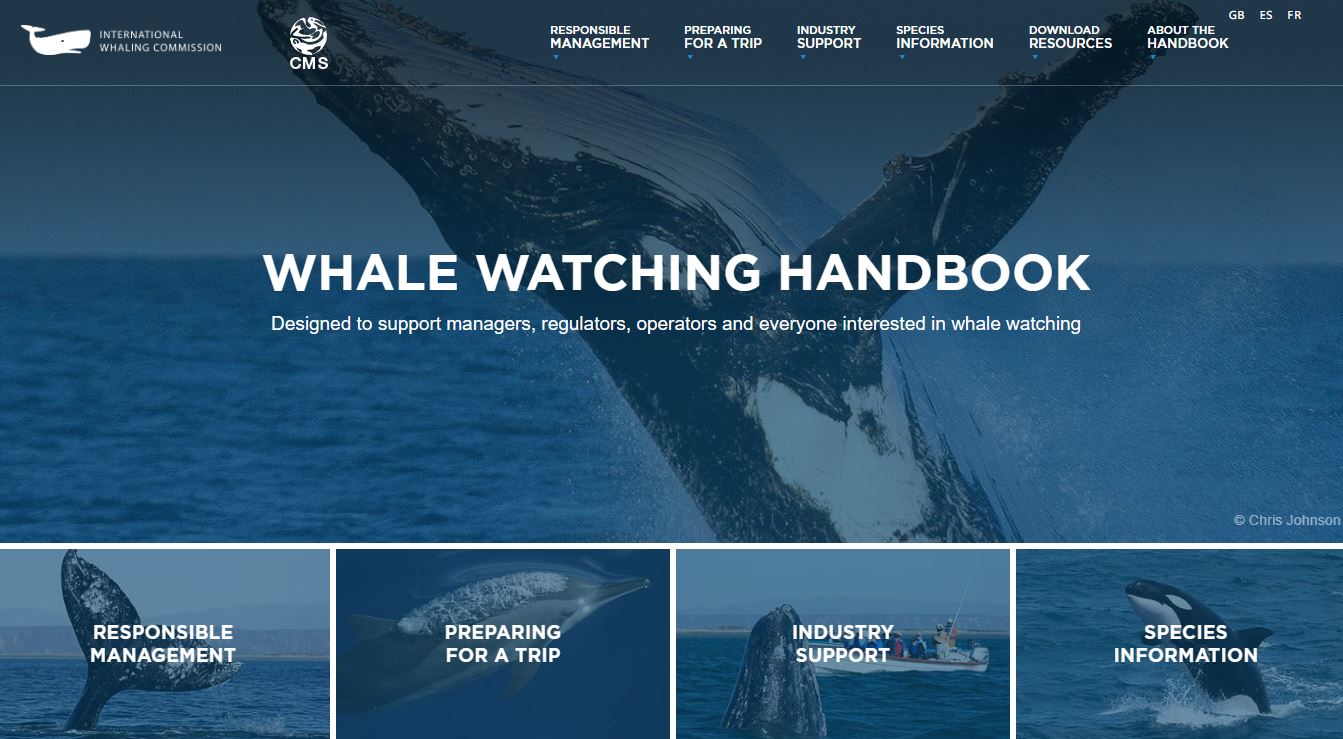The whale-watching industry, regulators, policymakers and the general public can all benefit from the Whale Watching Handbook, a website dedicated to sustainable and educational whale watching. The website offers free, independent and comprehensive advice, and is divided into sections for different groups of users.
The Handbook is a collaboration between two international organisations concerned with whales, dolphins and porpoises: the International Whaling Commission and the Convention for Migratory Species. The starting point is the latest scientific information on the potential impacts of whale watching on individual whales and the long-term health of whale populations. The result is an extensive Handbook of information developed in consultation with scientists, governments, whale-watching operators and conservation groups around the world.
Content includes an interactive world map containing information about whale watching in more than 30 countries, case studies and best practices for the industry, a species section with illustrations to help identify different species in the water, and educational sections on a range of issues related to whales and dolphins.
For whale watching operators, tour guides and educators: the Handbook helps to offer the best possible experience, manage expectations and maximise customer satisfaction. A range of free, downloadable resources are available including species and topic fact sheets, region-specific ID guides and best practice/lessons learned case studies from operators and guides in a variety of locations around the world.
For regulators and policy-makers: the Handbook contains information on stakeholder engagement, types of management strategy, monitoring and enforcement measures in operation around the world, and a comprehensive library of research and policy papers on the management of whale watching.
For the general public: the Handbook equips those preparing for a trip to make informed and responsible choices, with an interactive map showing which species may be seen in which locations, and fact sheets about those species including illustrations to help identify them, understand their behaviours, and learn more about their lives. The Handbook also explains how information gathered by tourists during a trip could contribute to important research and conservation efforts.
See online Whale watching handbook by the International Whaling Commission (IWC)
The Handbook is a living and evolving resource / tool
The IWC is the intergovernmental forum for the conservation of whales. It first recognised the economic and educational importance of whale watching in 1975, and the need to ensure whale watching is conducted responsibly.
This Handbook is designed to support managers, regulators, operators and anyone interested in whale watching. It is a flexible and evolving tool incorporating international best practice, educational resources and a summary of the latest, relevant scientific information.
Source: Seven Seas Media.org

